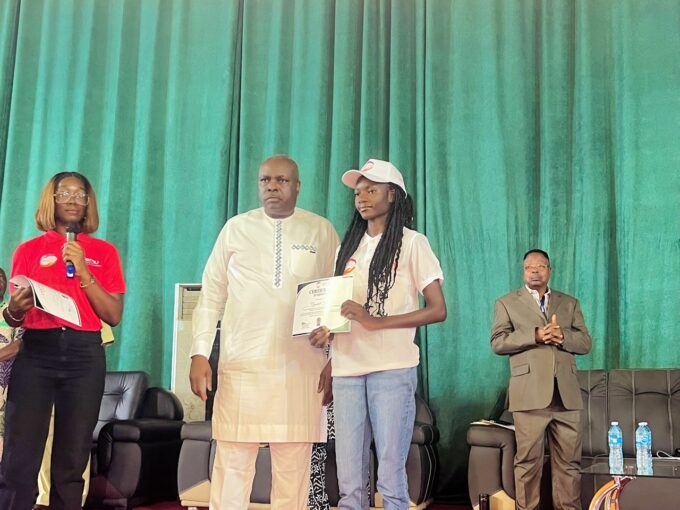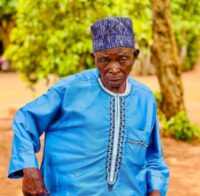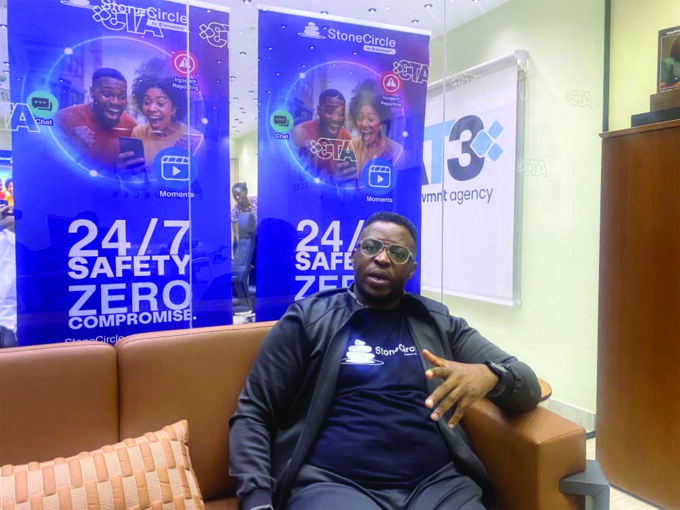In this second part of the investigation, JULIANA FRANCIS and ANGELA NKWO-AKPOLU uncover the deadly struggles widows and widowers endure in their fight to make the law serve justice. Their stories reveal the painful clash between tradition and rights.
Widows Testing The Laws Versus Their Realities
There is a disconnect between legal theory and reality. While a national law, the VAPP Act implementation is fragmented across different states.
The VAPP Act criminalises harmful widowhood practices. However, only 23 out of 36 states have adopted it. And prosecutions and convictions of perpetrators of these crimes are rare.
In the South East, for instance, this investigation discovers that physical, psychological, and social abuses have receded in prominence within the spectrum of harmful widowhood practices, yet economic deprivation, particularly the denial of widows’ property rights, persists.
These reporters spoke with several widows who have fought to protect their late husbands’ property from hostile relatives, using the law and available support systems.
One such widow, Chinyere Ibe, lost her husband, Innocent Ibe, on April 22, 2011. Soon after, her brother-in-law became hostile and tried to dispossess her.
Though the incident occurred before the enactment of the VAPP Act, Chinyere later sought help from human rights activist, Marjorie Ezihe of Sisters With A Goal Initiative (SWAGI), who invoked the Act to pursue justice. Chinyere recounted how her brother-in-law, now in his 80s, denied her access to her husband’s home, demolished two family houses, and seized her farmlands, claiming his six sons needed the land.
Even after favourable rulings from both the family council and Eze Ben Nwaneri of Ikeduru, as well as the National Human Rights Commission (NHRC) in Imo State, her brother-in-law ignored all decisions and continued his harassment. The situation worsened when he disrupted her daughter’s traditional marriage with hired thugs and later, on April 2, 2025, demolished two of her houses. The shock left Chinyere hospitalised with high blood pressure.
Her lawyer petitioned the Zone 9 Police Command, Umuahia, Abia State, which led to the man’s arraignment. Although granted bail, he still bars her from the property, offering instead to build her “a house in the bush.”
“I don’t want trouble,” Chinyere said. “I just want him to rebuild our home and return my farmland. He acts with impunity because he has six wealthy sons abroad, while I only have a teenage son.”
Now a retired nurse, Chinyere had hoped to return peacefully to her village. Instead, despite multiple favourable rulings, she continues to face displacement and injustice.
Appolo Ihekwere, a widow, is under investigation by the State Criminal Investigation Department (SCID) alongside her son, Darlington, over an alleged kidnapping she insists never occurred. She explained that her late husband raised his nephew, Donatus, as a son after Donatus’s father, his elder brother, died before his birth. In goodwill, her husband shared seven family plots of land with Donatus, granting him equal inheritance rights.
However, after her husband’s death, Donatus allegedly turned against her, attempting to seize her husband’s share. “When Donatus came of age, my husband gathered the Umunna and divided the lands between them,” Appolo said. “Donatus later sold his portion but never replaced it. Everything was peaceful until police from Orie Mbieri Division suddenly arrested me and my son for allegedly assaulting him, a claim that shocked us.”
Though released after giving statements, SCID operatives later stormed their home and took them to Owerri, the Imo State capital. “We were beaten mercilessly,” she recounted. “Police accused us of kidnapping Donatus and extorting N5 million, just two days before Darlington’s wedding.”
Appolo was released on the wedding day through the intervention of the NGO called Onurube Coalition, but she missed the ceremony. Her son remained in custody. “Without Onurube’s help, we might not have survived the torture,” she said. “All this because Donatus’s niece is dating a policeman who wants to show power.”
She expressed pain over being ostracised by her community’s women after sharing her ordeal on a live broadcast with social media activist, Chinonso Uba (Nonsonkwa). “Not one of them came to sympathise with me,” she said. “Their leader, from the Ministry of Justice, even ordered my exclusion from all gatherings.”
Appolo concluded: “Donatus is using his niece’s boyfriend, a policeman attached to the Commissioner’s office, Imo State Police Command, to torment me. Even the village head has warned him to stop, but he persists.”
Bridget Uba, wife of the late Pastor Anthony Uba from Mbaoma village in Emii, Owerri North LGA, Imo State, alleged that her brother-in-law murdered her husband during a land dispute on April 10, 2021. After fleeing the insurgency in Maiduguri, Bridget and her husband had returned home to restart their ministry. Anthony, the eldest son, divided family land with his younger brother, also a pastor, in the presence of the Umunna.
The brother later demanded more land, claiming he had donated his portion “to God.” Anthony refused, insisting the division was fair.
According to Bridget, around 2am on April 10, 2021, her husband’s brother and his sons broke into their home and strangled Anthony. Before dying, Anthony reportedly identified his attackers. The suspects allegedly buried him hastily and expelled Bridget and her children.
With support from the Imo State Committee on Ending Violence Against Women and Girls (ISCEVAWG), police intervened. The alleged killer was arraigned and briefly remanded before being released pending trial. An autopsy confirmed signs of violence, and Bridget was permitted to rebury her husband. The community has since ostracised the accused family.
Dorothy Nnanna, a widow with five children, narrowly escaped eviction after her husband, Solomon Nnanna, a truck driver, died in 2022. Despite having built a four-bedroom bungalow, Solomon’s siblings demanded property documents and the truck, which had already been sold to pay his hospital bills while his body lay in the morgue.
With the help of a human rights activist and police intervention, Dorothy retained her home. The traditional ruler also cautioned the in-laws against harassment. “My siblings’ quick call for help saved me,” she said. Dorothy now lives peacefully with her children.
While widows face dispossession and harmful practices, widowers also suffer abuse. Henry Anyanwuocha shared how his attempt to bury his late wife, Kindness, who died of leukaemia, on December 23, 2023, was delayed for 15 months. His brother-in-law allegedly demanded N4.5 million in “traditional rites” before granting burial approval.
Despite repeated pleas and trips to Port Harcourt, Rivers State, Henry later discovered the extortion plot was orchestrated by his cousin, motivated by an old land dispute. The National Human Rights Commission (NHRC) intervened, exposing the documents being used for extortion as forged.
A visit to the Imo State Police Command by one of the reporters revealed that many detainees are victims of land-related disputes that escalated into criminal cases. A police officer, speaking anonymously, admitted that Imo State Police Command postings are considered “lucrative” because of frequent land cases. “People here often use the police to intimidate their relatives, especially over land disputes,” he said, smiling with satisfaction.
Dr. Omolola Omoteso, President, Cares Global Network
Dr. Omolola Omoteso, President of Cares Global Network and Board Chair of the Walk With Widows Initiative, shared her personal experience in testing the VAPP Act, which she said failed to deliver justice.
“My experience was quite unusual,” she recounted. “I narrowly escaped a harmful practice when my sister-in-law insisted I ride alone in the hearse with my late husband’s body. What followed were disinheritance, discrimination, cyberbullying, physical assault, and the hijacking of properties.
“These injustices stemmed from impersonation, misrepresentation, and the wrongful collection of documents. Four properties, land, and personal belongings were seized in both Nigeria and the US. I was also defrauded by a real estate developer who took advantage of my vulnerability.
“The police were involved but demanded millions in bribes for logistics. The NHRC admitted my case as the first widow-specific complaint, but after the initial hearing, no further action was taken. Two lawyers contributed to the abuse, yet neither FIDA nor the Nigerian Bar Association pursued the case. WARDC later intervened but withdrew, likely due to its government ties.”
Speaking on the shortcomings of the VAPP Act, Omoteso said its broad language fails to recognise or criminalise violence against widows. She said: “Section 15 mentions widows but offers no protection for those already abused, and it does not specify who is responsible for enforcement. Widows who approach the police often face degrading responses, such as being told to ‘respect their in-laws and sort it out.’ The Act applies in the FCT unless domesticated by states. Lagos State, for instance, has not adopted VAPP but instead operates under its own Protection Against Domestic Violence Law, which does not cover widows.”
Omoteso noted that the proposed Widow Protection Bill seeks to amend the VAPP Act to address these gaps, focusing specifically on widows’ rights. However, it has not yet been signed into law. “It still overlooks those who have already been abused,” she said. “The bill aims to eliminate repressive cultural practices against widows, safeguard their fundamental rights, and provide remedies, including compensation and jail terms for offenders.” The bill, sponsored by Hon. Adejoro (APC, Ondo), passed its second reading in 2022 and is awaiting Senate consideration, said Omoteso.
What The Data Reveals About Harmful Widowhood Practices And The Law
Professor Barika D. Saro-Laka, Grand Patron of the National Association of Nigerian Widows (NANIWO), Abuja, said: “There have been no prosecutions or convictions related to harmful widowhood practices. Some widows report maltreatment by relatives, but when we move to take action, they often withdraw.”
He noted that most widows are reluctant to pursue legal cases against family members. Saro-Laka explained that many widows ask for time before taking legal action, preferring to first consult their in-laws or siblings. “This is not a decision one person can make alone,” he said.
He noted that while NANIWO has received no recent reports of harmful widowhood practices, this does not mean such traditions have disappeared. “Some communities still engage in these practices,” he said. “We have over 6,000 registered widows, and for more than a year, none have reported such cases. But that doesn’t mean they no longer exist.”
On legislation, Saro-Laka said he was unaware of the pending Widowhood Protection Bill but has long advocated for a National Widows Trust Fund to provide social, economic, and psychological support. “Like the National Commission for Persons with Disabilities, such a body would help widows access soft loans for small businesses or education,” he explained. “It would restore their dignity, promote their welfare, and give them a sense of belonging. That would be the best gift for widows.”
Former State Coordinator of the Violence Against Persons Prohibition (VAPP) Law Implementation Committee in Anambra State, Hope Okoye, responding to a question on convictions of perpetrators of abuses against widows, said: “I may not always be in court to know every case that has received judgment. When a case comes in, we play our part. There’s a legal team and lawyers. Just as we have the Sexual Offenders’ Register, the Ministry of Justice also records all convictions. People have been sentenced for rape and defilement. When I was frequently in court, we secured several convictions in different cases, including trafficking.”
Citing a specific case where a widow was forced to drink water used to wash a corpse, Okoye said: “The last time I was in court, the widow and her son had testified. The case was moving toward judgment, and we expect a positive ruling in her favour.”
Chairperson of the Federation of Women Lawyers (FIDA), Imo State, Phil Amaefula, confirmed that FIDA receives numerous cases from widows but could not provide specific data on reported cases, prosecutions, or convictions.
The National Agency for the Prohibition of Trafficking in Persons (NAPTIP) serves as the implementing agency of the VAPP Act at the federal level. In response to a Freedom of Information (FoI) request, NAPTIP disclosed that between 2020 and 2025, it recorded zero reported cases of harmful widowhood practices and zero reported deaths linked to harmful widowhood rites.
The agency further noted that it has recorded no such cases since the adoption of the VAPP Act in 2015. According to NAPTIP, the measures adopted to enforce the VAPP Act provisions relating to harmful widowhood practices are anchored on its five-pronged approach: policy, prevention, protection, prosecution, and partnership.
However, the agency did not provide details on how these elements work together to ensure effectiveness. When asked what has been done to address cultural and traditional factors that contribute to the persistence of these practices, NAPTIP again cited the five-pronged strategy.
On the question of whether law enforcement agencies and judicial officers have been trained to handle cases involving widows and widowhood rites, the agency mentioned only the Federal Ministry of Justice (Gender Department). NAPTIP also responded “Not applicable” when asked whether community leaders were facilitating harmful practices or contributing to their eradication.
Similarly, on the biggest challenges faced in implementing VAPP Act provisions on harmful widowhood practices, the agency stated that the question was not applicable since no such cases had been reported. The agency, however, provided broader data on VAPP Act enforcement. Between 2020 and 2025, 156 VAPP cases were taken to court;
2020: 51 cases; 2021: 25 cases; 2022: 24 cases’ 2023: 21 cases; 2024: 20 cases; and January to August 2025: 15 cases. None of these cases involved harmful widowhood practices.
On convictions secured under the VAPP Act between 2020 and 2025, NAPTIP reported a total of 28 convictions: 2020: One conviction, 2021: Two convictions, 2022: Four convictions, 2023: Seven convictions, 2024: 10 convictions and January to August 2025: Four convictions.
Again, none of these convictions involved harmful widowhood practices, either between 2020 and 2025 or since the adoption of the VAPP Act, 2015.
The Lagos State Domestic and Sexual Violence Agency (DSVA) is currently led by Titilola Vivour-Adeniyi, who serves as the Executive Secretary.
DSVA, in its response to a Freedom of Information (FoI) request, disclosed that from 2020 to 2025, a total of five cases of harmful widowhood practices were reported. However, more widows reported cases of domestic violence and other forms of sexual and gender-based violence (SGBV).
According to the agency, three of the reported cases were taken to court for prosecution. None has yet resulted in a conviction, as the cases are still ongoing. The DSVA also confirmed that no deaths or cases of maiming of widows during harmful rites were recorded within the period under review.
When asked for data on reported cases of harmful widowhood practices since the enactment of the Violence Against Persons (Prohibition) Act (VAPP Act) and the actions taken in response, the DSVA explained that most of the reports were categorised and treated as cases of domestic violence and assault. The agency further noted that the establishment of the DSVA itself was a key measure to enforce the provisions of the VAPP Act relating to harmful widowhood practices.
It also highlighted existing gaps in the VAPP Act, which allow such harmful practices to persist, gaps that, according to the agency, could be effectively addressed by the proposed Widow Protection Bill. (See infographic).
When asked whether there are officials specifically trained to handle cases related to harmful widowhood practices, the agency explained that, as a body dedicated to responding to Sexual and Gender-Based Violence (SGBV), it has professionals who are equipped to manage such sensitive issues.
According to the agency, these trained officers are expected to provide support and intervention not only in widowhood-related abuses but also across the wider spectrum of gender-based violence.
This ensures that survivors, including widows, can access professional care, legal guidance, and protection when they summon the courage to report their cases.
When asked about the challenges of tackling harmful widowhood practices, the agency painted a picture of deep-rooted obstacles that go beyond mere law enforcement. One of the most pressing issues is the low level of reporting by victims. Many widows remain silent out of fear of stigma, retaliation, or rejection by their families and communities.
Cultural norms reinforce this silence, as family loyalty and a blame-and-shame culture discourage women from speaking out or seeking justice. Limited awareness and education further compound the problem. Many widows are unaware of their rights, while communities often do not recognise that certain harmful practices are illegal. This lack of knowledge creates fertile ground for abuse to continue unchecked.
Between 2020 and 2025, the agency recorded 125 cases reported by widows. The breakdown of these cases shows the scale and diversity of abuses faced: Threats to life: 25; Emotional abuse: 8; Female genital mutilation: 2; Physical abuse: 42; Deprivation: 9; Harassment: 5; Sexual assault: 6; Rape: 5; Land and property disputes: 10; Child custody issues: 12; and Cyber harassment/publication of intimate images: 1.
The figures highlight how widowhood-related abuses are not only about cultural practices but also intersect with broader forms of violence and rights violations.
For the agency, the task remains daunting: breaking through silence, challenging harmful traditions, and creating a system in which widows feel safe enough to report and strong enough to demand justice.
The Women Aid Collective (WACOL) is an independent, non-partisan, non-governmental, and non-profit organisation. WACOL operates a daily legal unit offering free legal aid to survivors of sexual and gender-based violence (SGBV). Cases include sexual assault, disinheritance, harmful widowhood and traditional practices, physical, emotional, and psychological abuse, forced eviction, abandonment, and disputes over child custody and maintenance.
While responding to an FOI request, the agency provided reporters with its primary data. However, all violations, including harmful widowhood practices, were categorised under SGBV.
An FOI request was sent to The Rose of Sharon Foundation (RoSF), a Nigerian non-profit, faith-based organisation dedicated to empowering widows, their children, and orphans through education and advocacy. Founded by Apostle Folorunsho Alakija, the foundation has supported over 4,262 widows and more than 20,000 indirect beneficiaries across Nigeria’s six geopolitical zones.
Although the FOI request was acknowledged, repeated follow-ups via email and phone calls to the Foundation’s Public Relations Officer received no response regarding the number of reported cases of harmful widowhood practices or related prosecutions and convictions between 2020 and 2025.
The Delta State Police Command reported that its Gender Desk Unit has no records of such Sexual and Gender-Based Violence (SGBV) cases. Meanwhile, the Enugu, Imo, and Anambra States Police Commands have yet to respond to similar data requests. Reporters are also awaiting a response to the FOI request submitted to the Lagos State Police Command Gender Desk Unit through the Commissioner of Police.
Assistant Commissioner of Police overseeing the Unit, Toyin Kazeem, who acknowledged receipt of the request, said she was awaiting directives from the Commissioner before releasing the data.
This report was facilitated by the Wole Soyinka Centre for Investigative Journalism (WSCIJ) under the Champion Building Component of its Report Women! News and Newsroom Engagement Project.




















Leave a comment